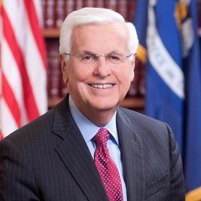Emergency assessment ordered
 Florida is in store for a whopping 76% increase in homeowners insurance premiums in 2023 over last year, insurance regulators approve an emergency assessment on almost all Florida insurance policies to pay for the most recent carrier insolvency, plus signs and warnings that the bad actors who helped ruin Florida’s property insurance market are migrating to Louisiana and Texas. It’s all in this week’s Property Insurance News digest.
Florida is in store for a whopping 76% increase in homeowners insurance premiums in 2023 over last year, insurance regulators approve an emergency assessment on almost all Florida insurance policies to pay for the most recent carrier insolvency, plus signs and warnings that the bad actors who helped ruin Florida’s property insurance market are migrating to Louisiana and Texas. It’s all in this week’s Property Insurance News digest.
 Homeowners Rate Hikes: A new report by the virtual insurance agency Insurify projects Floridians will pay an average of nearly $8,000 in homeowners insurance premiums in 2023, a 76% increase ($3,356) over last year. Inflation and catastrophic events are partially to blame but rampant fraud and excessive litigation are major contributors to the price hike. Florida topped the list of predicted highest average annual premiums ($7,788), followed by Oklahoma ($6,853), Louisiana ($5,353), Alabama ($5,102), and Kansas ($5,005). Hallandale Beach tops the list of most expensive cities for homeowners insurance, with an average annual rate of $12,578. Three other cities in Florida – Hialeah, Miami, and Lake Worth – follow closely behind. Nationally, average premiums will increase by 9% (about $150) in 2023, from $1,636 to $1,784, following the 7% increase seen in 2022.
Homeowners Rate Hikes: A new report by the virtual insurance agency Insurify projects Floridians will pay an average of nearly $8,000 in homeowners insurance premiums in 2023, a 76% increase ($3,356) over last year. Inflation and catastrophic events are partially to blame but rampant fraud and excessive litigation are major contributors to the price hike. Florida topped the list of predicted highest average annual premiums ($7,788), followed by Oklahoma ($6,853), Louisiana ($5,353), Alabama ($5,102), and Kansas ($5,005). Hallandale Beach tops the list of most expensive cities for homeowners insurance, with an average annual rate of $12,578. Three other cities in Florida – Hialeah, Miami, and Lake Worth – follow closely behind. Nationally, average premiums will increase by 9% (about $150) in 2023, from $1,636 to $1,784, following the 7% increase seen in 2022.
 Emergency Assessment: The Florida Office of Insurance Regulation last week ordered a 1% emergency assessment on all property insurance policies across all lines, except automobile. The order was made necessary by the United Property & Casualty (UPC) insolvency in February. It pushed the Florida Insurance Guaranty Association’s (FIGA) previous 9,100 pending claims count to more than 24,500 and has added an estimated $550 million to $650 million liability on FIGA. FIGA, in turn, is floating bonds to fund those claims payouts. The assessment will begin October 1, 2023 and continue for a year, with automatic renewals after that until the bonds are paid off, expected in 2025. This assessment will be a pass-through to policyholders. FIGA will hold a public workshop at a future date to provide insurance companies with information on how to report and remit surcharges.
Emergency Assessment: The Florida Office of Insurance Regulation last week ordered a 1% emergency assessment on all property insurance policies across all lines, except automobile. The order was made necessary by the United Property & Casualty (UPC) insolvency in February. It pushed the Florida Insurance Guaranty Association’s (FIGA) previous 9,100 pending claims count to more than 24,500 and has added an estimated $550 million to $650 million liability on FIGA. FIGA, in turn, is floating bonds to fund those claims payouts. The assessment will begin October 1, 2023 and continue for a year, with automatic renewals after that until the bonds are paid off, expected in 2025. This assessment will be a pass-through to policyholders. FIGA will hold a public workshop at a future date to provide insurance companies with information on how to report and remit surcharges.

Louisiana Insurance Commissioner Jim Donelon
Exporting Bad Actors: Louisiana Insurance Commissioner Jim Donelon is warning his state’s legislature that it better follow Florida’s example and pass comprehensive insurance marketplace reforms. “Because of recent changes in Florida, I expect those bad actors to target Louisiana homeowners next,” Donelon said. “In fact, we’re already seeing it.” Donelon is promoting a legislative package which would include stopping the use of AOB contracts and preventing unscrupulous contractors and law firms from being able to file lawsuits on behalf of homeowners. We’re glad that Florida is leading the way and am sure Commissioner Donelon realizes that such reforms will take 18-24 months to impact insurance rates as we’ve been told.
Next door in Texas, seasoned insurance lawyer Steve Badger, who has provided keen market insights over the years, posted this on LinkedIn: “If you were a Florida restoration contractor and the Florida legislature had just essentially wiped-out your insurance claim based business model, what would you do? Apparently….move to Texas. Rumor has it that some large Florida restoration contractors are packing up shop and moving to Texas – to replicate the same business model they previously used in Florida. Under this model, they get the homeowner to sign a contract with vague pricing terms, take a small water leak or storm damage claim and turn it into huge restoration project, draft a grossly inflated estimate, create a dispute with the homeowner’s insurance company, place a lien on the home, and then flip the matter to a lawyer. This should raise a serious concern with both Texas policyholder advocates and Texas insurance industry representatives.”
LMA Newsletter of 4-17-23

